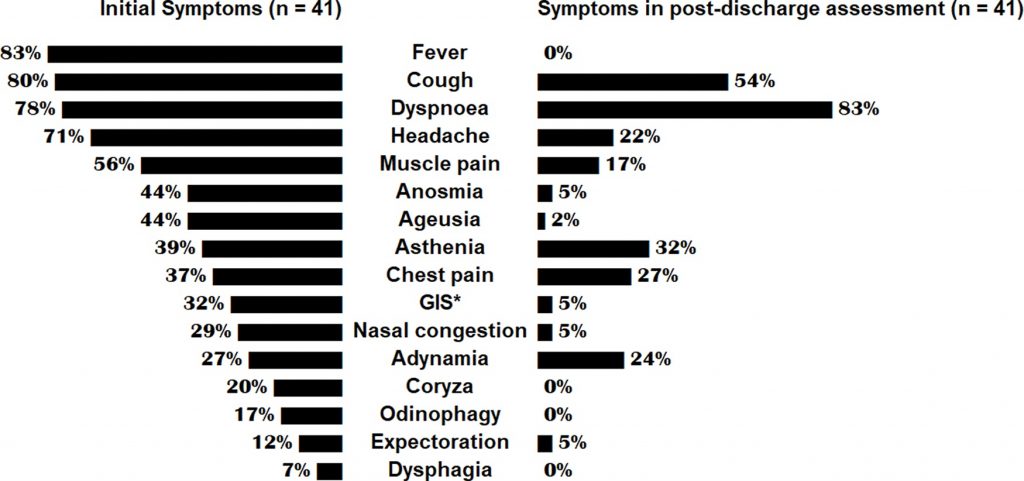Clinics (Sao Paulo). 2021;76:e2848.
Pulmonary function evaluation after hospital discharge of patients with severe COVID-19
DOI: 10.6061/clinics/2021/e2848
OBJECTIVES:
Coronavirus disease 2019 (COVID-19) may be associated with prolonged symptoms and post-recovery health impairment. This study aimed to evaluate the persistence of symptoms, lung function, and pulmonary diffusion for carbon monoxide (DLCO) in patients between 15 and 30 days after hospital discharge after admission for severe COVID-19.
METHODS:
The evaluation consisted of 1) comparative analysis between the initial symptoms and symptoms still present at the post-discharge evaluation 2) analysis of the chest images obtained during hospitalization, and 3) conducting spirometry, plethysmography, and DLCO assessment.
RESULTS:
Forty-one patients who were hospitalized for 16±8 days with severe COVID-19 were included. Patients were predominantly men (73%) and had a mean age of 51±14 years. The most frequent comorbidities were arterial hypertension (51%) and diabetes mellitus (37%). Pulmonary evaluation was performed a mean of 36 days after the onset of symptoms, with the most frequent persistent symptoms being dyspnea (83%) and coughing (54%). Approximately 93% of patients still had at least one symptom, and 20% had more than five symptoms. Chest imaging revealed a typical pattern of COVID-19 on X-ray (93%) and computer tomography (95%). Lung function test results showed a restrictive pattern with a reduction in forced vital capacity (FVC) in 54% of individuals, with an average FVC of 78±14%. A reduction in DLCO was observed in 79% of patients.
CONCLUSIONS:
We observed a high prevalence of symptoms, in addition to a significant change in lung function and DLCO, in the post-discharge assessment of patients requiring hospitalization after admission for COVID-19.
Keywords: COVID-19; Pulmonary function test; SARS-CoV-2; Symptoms
34


